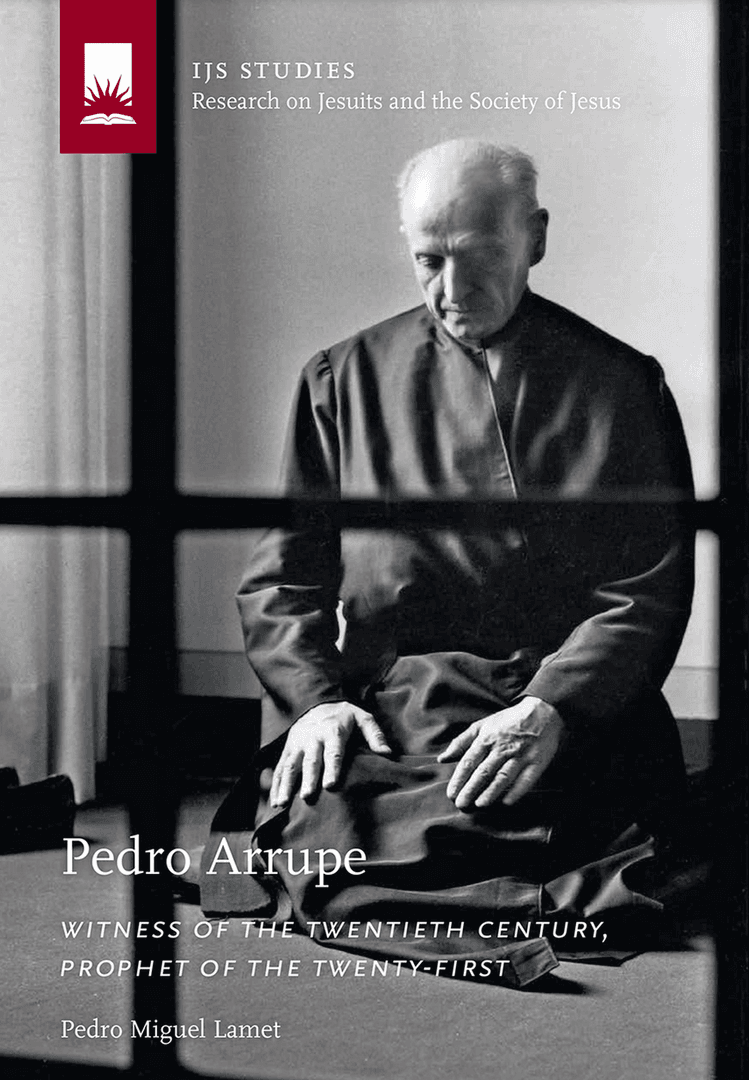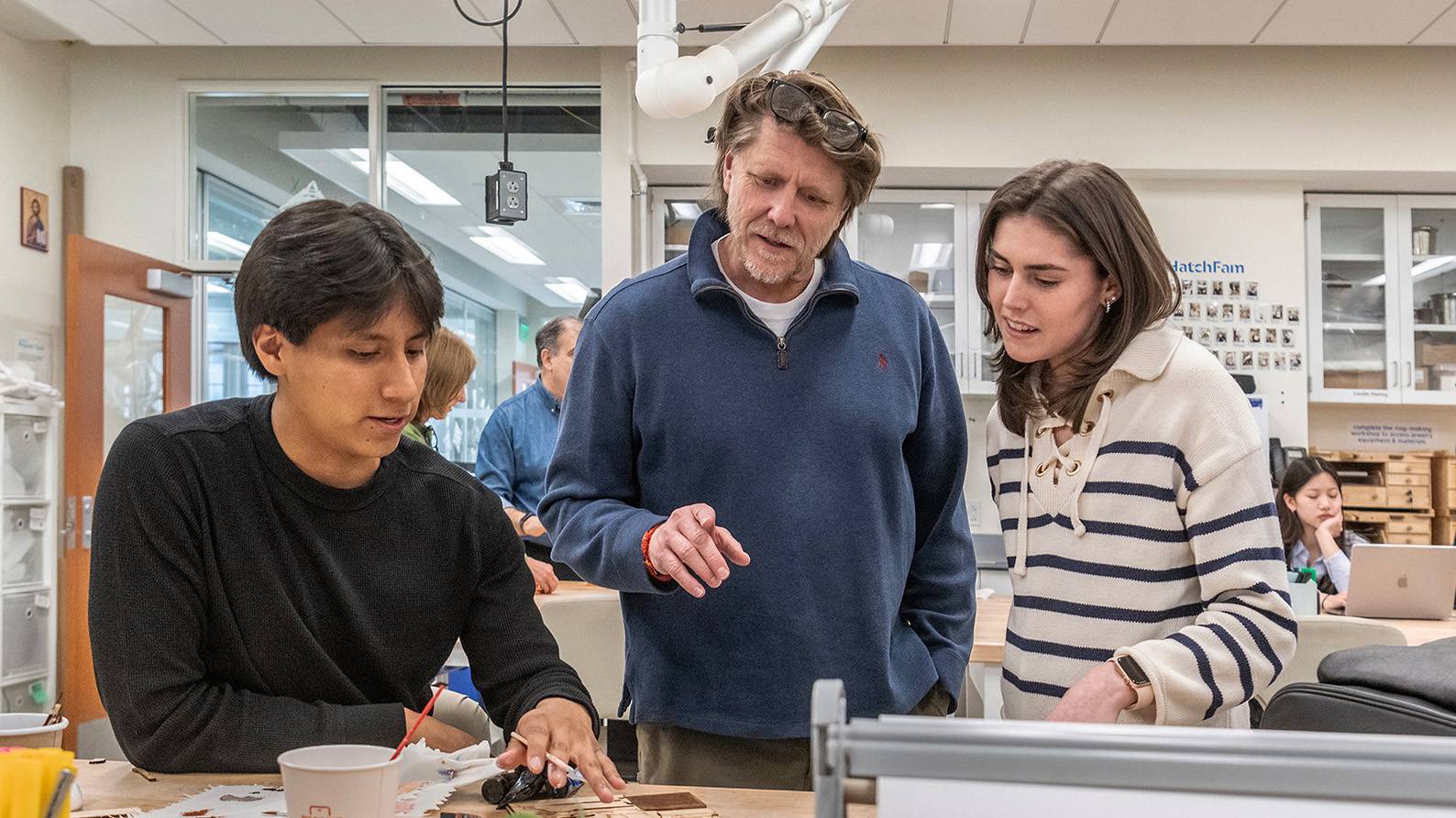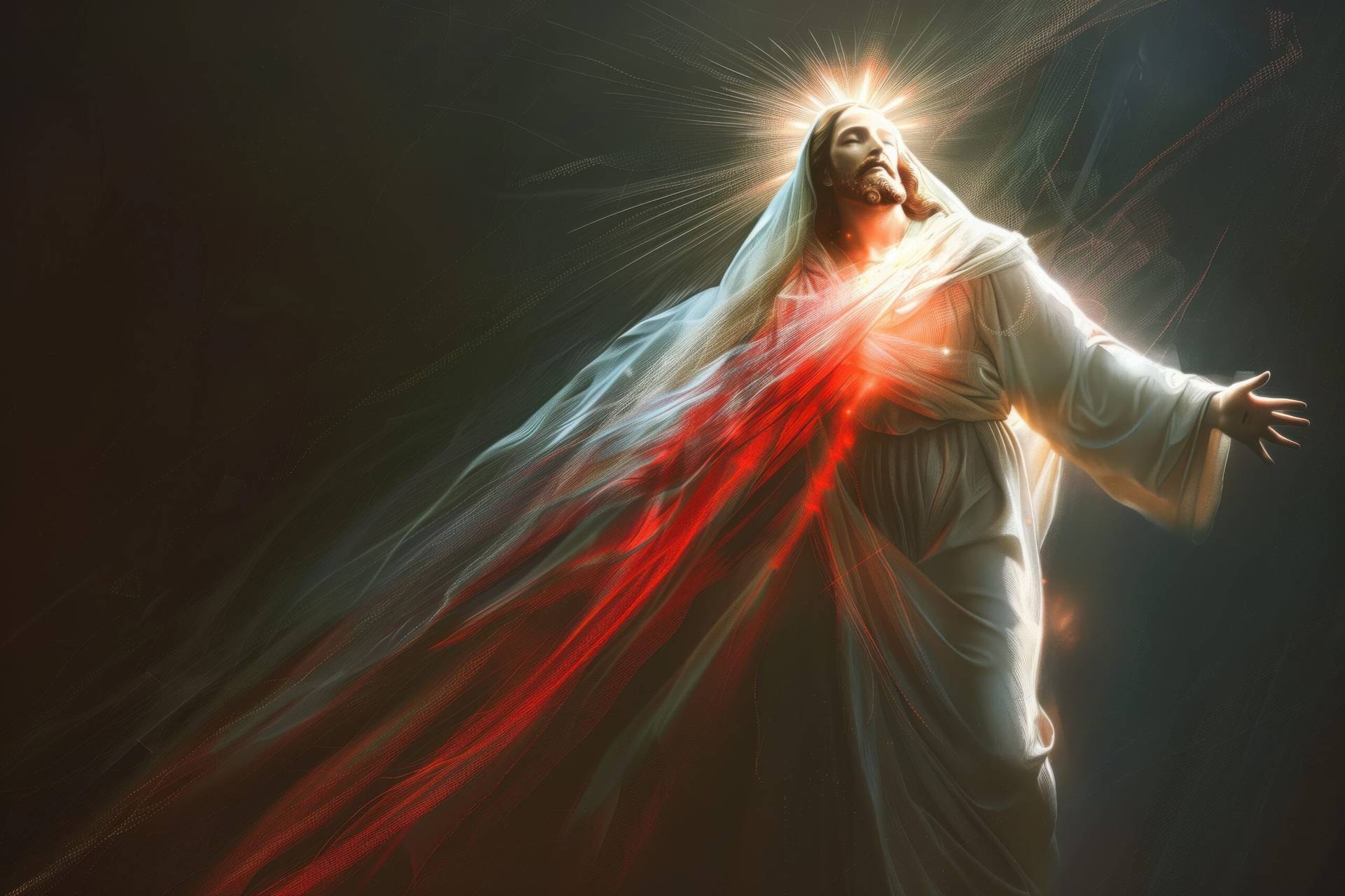As a help in promoting Pedro Arrupe’s cause for canonization, the Institute of Jesuit Sources at Boston College has made available now for the first time in English Pedro Arrupe: Witness of the Twentieth Century, Prophet of the Twenty-First.
The biography, originally composed in Spanish by Jesuit Father Pedro Miguel Lamet, has seen over twenty editions in multiple languages. Lamet knew Arrupe personally and had opportunities to interview him, making this work the definitive biography of this Jesuit who, like Ignatius Loyola, came from the Basque region of Spain.
The Institute had the opportunity to dialogue with Lamet to ask him why English readers might find his work of interest.
Institute: Why did you write the biography of Pedro Arrupe and what kind of response did you receive from early readers of it?

Lamet: I have always been a great admirer of Pedro Arrupe, for his trajectory as a missionary in Japan and for his interpretation of St. Ignatius for today’s world. I have been fascinated by his magnetic personality, his universal spirit, and his readiness to dialogue with all cultures and religions. I interacted with him as a Jesuit and as a journalist several times while in Spain and Rome, and I was fortunate to have the gift of his friendship.
When he fell ill with thrombosis, I had the privilege to interview him for 20 days while he was in an infirmary in Rome, and in addition to gather testimony about him from all over the world. My biography has appeared in Spanish, Italian, and Portuguese and has had 23 successful editions. I have received testimonials from many people that reading his story has changed their lives: some have felt the stirrings of a vocation to religious life, others to commit to volunteering in underdeveloped countries and to fight for the faith and for justice.
My experience is that Arrupe continues to act through this book. I have only acted as a mediator.
With the English edition newly released by the Institute for Advanced Jesuit Studies, why would you recommend English readers read this biography?
Most of all, to gain knowledge of the life of an exceptional witness to the 20th century, and of a prophet of the 21st century. Father Arrupe was ahead of his time regarding issues of social injustice, inculturation, migration, world hunger, refugees, the situation of women in the Church, selfish nationalism, the dialogue between East and West, the renewal of the consecrated life and the liberation of oppressed people. But above all in the centrality of love for Jesus Christ. In his time, he was very much loved and admired in the United States.
Secondly, this biography contains hundreds of testimonials of his contemporaries as well as his own. I am especially appreciative of how he trusted me with discussing his personal life and his bloodless martyrdom when I visited him during his illness in Rome. Suffice it to say about these interviews that I left his bedside in tears over the supernatural spirit with which he faced his marginalized state and the seeming futility of his later years in Calvary.
In addition, this book touches on the main events in the world and the Church of the past century insofar as they relate to his life.
Given all of the upheaval in our world–with the pandemic, social angst, and political upheaval–what makes the figure of Pedro Arrupe interesting for us in today’s world?
There’s a statement of his that can help us in the current situation: “Perhaps the Lord has never been as close to us as He is now, yet we have never been so insecure”. And the last words which he uttered a few days before losing consciousness and which became his testament: “For the present Amen; for the future Alleluia”.
The past does not count and feeling guilty serves no purpose. We need to accept the “now”, the present, what we have. About his suffering, he told me, closing his eyes: “We suffer and we offer it. It is life. God is beyond all. My life is to be with God. We have to see God in everything. I don’t understand this. But it must be from God, from his Providence…. It’s something very special. For me, it is good. But for the Society? It has to be God’s thing. From time to time I feel a very special strength.”
He grasps the rosary and declares: “Of this, a lot, a lot, a lot. For me, nothing, nothing, nothing (he says this with great conviction). Above all, the Trinitarian God; then, the heart of our Lord, and then this poor one. The Lord who gives me His light. I wish to give everything to the Lord”.
And regarding the future “Alleluia”, he trusts that we are in the hands of God. He was transfigured in prayer and in the Mass as if he was not in this world.
What attribute of Pedro Arrupe’s character did you come to admire most while writing this biography?
Psychologically he was an enthusiastic man, passionate and at the same time prudent and congenial. More than a Superior, he seemed a friend of all. Each Jesuit could claim: “Father Arrupe loves me”.
Perhaps his greatest characteristic was his optimism. In his words he confirmed: “They say that I am a pathological optimist. But how can I not be an optimist if I believe in God?” Also, it impressed me how he could be so generous with others but so austere with himself. He barely slept and he ate very little. On the day that he was elected Superior General of the Company, the Sacristan brother asked him: “Father General, Mass tomorrow at 7AM?”. “Please brother, don’t break up my morning!” was Arrupe’s response.
He gave more importance to “being” than he did to preaching.
Like St. Ignatius, his feet were on earth but his heart was in heaven. In my opinion, he was a mystic who had taken a “vow of perfection” (to choose the more difficult of the two choices) and who had divine revelations or “illuminations” on several occasions: one of them when his watch stopped when the atomic bomb exploded over Hiroshima. However, he lived through it all as if it were completely natural, without granting it the most minimal importance.
Fortunately, although he was always considered a saint by the Jesuits and others who encountered him, it appears that finally the hour of his official recognition as such approaches. Everything can be summed up in his own words: “For me, God is everything. He is what fulfills my life completely and who appears in the face of Jesus Christ, in the Jesus Christ who is hidden in the Eucharist, and then in my fellow brothers and sisters who are the image of God.”














